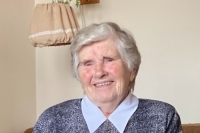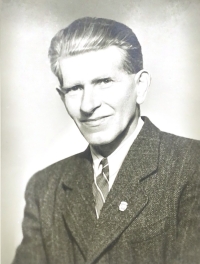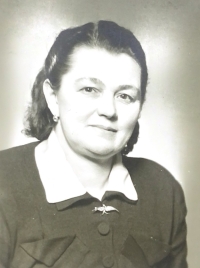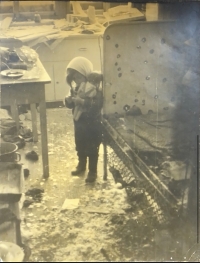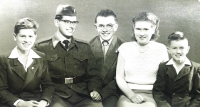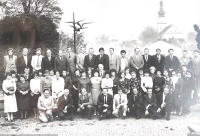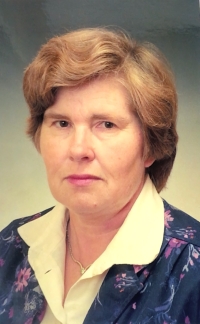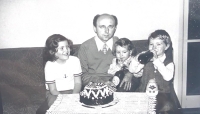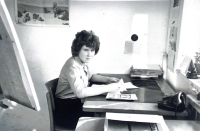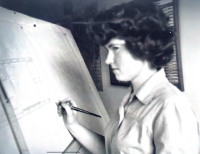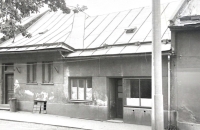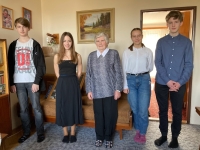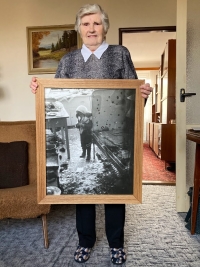The ninth of May is the day of my second birth

Download image
Jarmila Omesová, née Špinarová, was born in Žďár nad Sázavou on 25 March 1942 to Božena Špinarová and Bohuslav Špinar. Her parents owned a small general store. On 9 May 1945, the family hid in the cellar because there was shooting in the street. The Germans shot up and destroyed their house. They survived the dramatic events in the cellar and did not come out until noon on 10 May. Her photograph from that day, a three-year-old girl standing with a doll in one hand and a wooden spoon in the other next to a shot-up bed in the wrecked house, has become legendary in Žďár nad Sázavou. The regime took the family’s shop in 1951. She started going to school in 1948. She completed her first five grades at the primary school for girls, renamed from the sixth grade on an eight-year secondary school. After the final exams, she entered the eleven-year high school, which she finished with the matriculation exam. She was not admitted to university because of her poor cadre profile. From June 1959 until her retirement in 1996, she worked in various positions at ŽĎAS. She took part in disseminating the samizdat in the 1980s. She lived in Žďár nad Sázavou in 2024.
